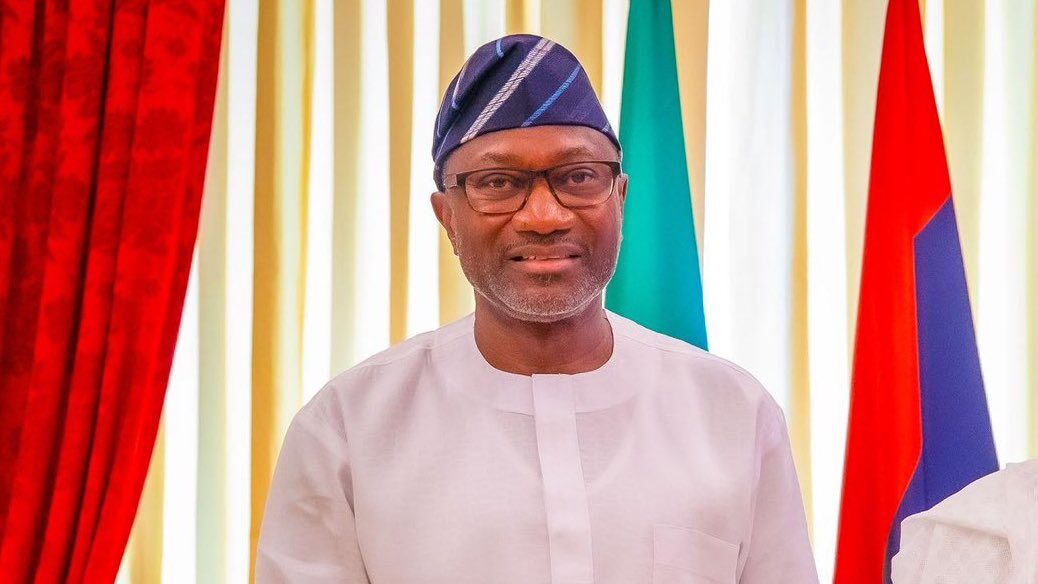President Tinubu’s administration has taken commendable steps which resonate with the young generation, reckons DARE OJEPE
As we mark two years since President Bola Tinubu assumed office, it is essential to evaluate his administration’s impact on Nigeria’s youth, a vital segment of the nation’s future. From the lens of students and young professionals, several initiatives and policies stand out, particularly the introduction of student loans, grants for technical education students, and the composition of his cabinet.
One of the most anticipated moves by President Tinubu has been the successful execution of the student loan scheme (NELFUND) aimed at increasing access to higher education. For many Nigerian youths, financing university studies remains a significant hurdle, often leading to prolonged academic timelines or inability to attend higher institutions. The administration’s efforts to establish accessible, affordable loans is revolutionizing higher education financing. It is enabling bright but economically disadvantaged students to pursue their academic aspirations without the crippling fear of debt or financial exclusion.
This initiative also signifies a paradigm shift in Nigeria’s educational policy, moving from a subsidized or free education model to a more sustainable, loan-based system that encourages responsible borrowing and repayment. For the youth, this provides hope and a clearer pathway to upward mobility. Moreover, it instills a sense of financial discipline and responsibility among students, shaping a generation that values education and understands the importance of financial planning.
Recognizing the importance of skill acquisition and technical education, the government’s N45,000 grants for students in technical schools show a commendable commitment toward diversifying Nigeria’s workforce. Such grants can potentially stimulate interest in technical colleges, leading to a more technologically skilled youth population capable of driving Nigeria’s industrialization and innovation agendas. It is an encouraging move, especially in a country where youth unemployment remains high, and practical skills are increasingly valued in a global economy.
Furthermore, these grants can serve as a catalyst for rebranding technical education as a first choice for many young Nigerians who traditionally view it as a lesser alternative to university education. By investing directly in technical institutions, the government is fostering a culture of innovation, entrepreneurship, and self-reliance; qualities essential for tackling unemployment and economic stagnation.
President Tinubu’s cabinet choices have reflected a progressive approach to youth involvement in government. Several key positions have been filled by young and dynamic individuals who bring fresh perspectives and innovative solutions to the table. This inclusion demonstrates an understanding that the challenges facing Nigeria require daring and energetic minds capable of devising new ways to forge progress. Through mentorship and direct involvement, these young leaders are learning the intricacies of governance, ensuring a sustainable leadership pipeline for the future.
The presence of youthful ministers and advisors also energizes youth engagement in governance processes, encouraging more active participation from young Nigerians in policymaking, civic discourse, and activism. It serves as a signal that leadership is increasingly recognizing the importance of diversity in age, experience, and outlook and that youth voices are vital in charting Nigeria’s future.
While these initiatives are promising, the journey toward meaningful change is undoubtedly ongoing. For Nigeria’s youth, the next two years will be critical in seeing these policies translate into tangible benefits. More accessible education, practical skills, and genuine youth participation in governance are necessary to realize the full potential of these efforts.
Future plans should include expanding the reach of the student loan programme, ensuring it is inclusive and sustainable, and integrating more youth-centric policies into broader economic and social reforms. Additionally, fostering entrepreneurship among young Nigerians by offering seed funding, mentorship programs, and technology hubs can accelerate job creation and innovation.
A strategic approach would be to embed youth-focused policies into Nigeria’s overall development plan. This could involve dedicated ministries or agencies tasked with youth development, skill acquisition, and employment facilitation. Building partnerships with private sector stakeholders to create internship and apprenticeship programmes can also bridge the gap between education and employment.
Another essential aspect is amplifying youth voices in policy conversations. Platforms such as youth councils, consultative town halls, and digital forums can foster greater inclusivity and ensure policies address the real needs and aspirations of young Nigerians.
In summary, President Bola Tinubu’s administration has taken commendable initial steps that resonate positively with Nigeria’s young generation. It demonstrates an awareness of the importance of investing in youth-centric policies. If executed with transparency, commitment, and continuous engagement, these measures can lay a solid foundation for a more empowered, skilled, and engaged youth population. As young Nigerians, our hope remains steadfast: that the next phase of his leadership will deliver on these promises and pave the way for a brighter future for all.
Ojepe is the Senior Special Assistant to the President on Youth Engagement



